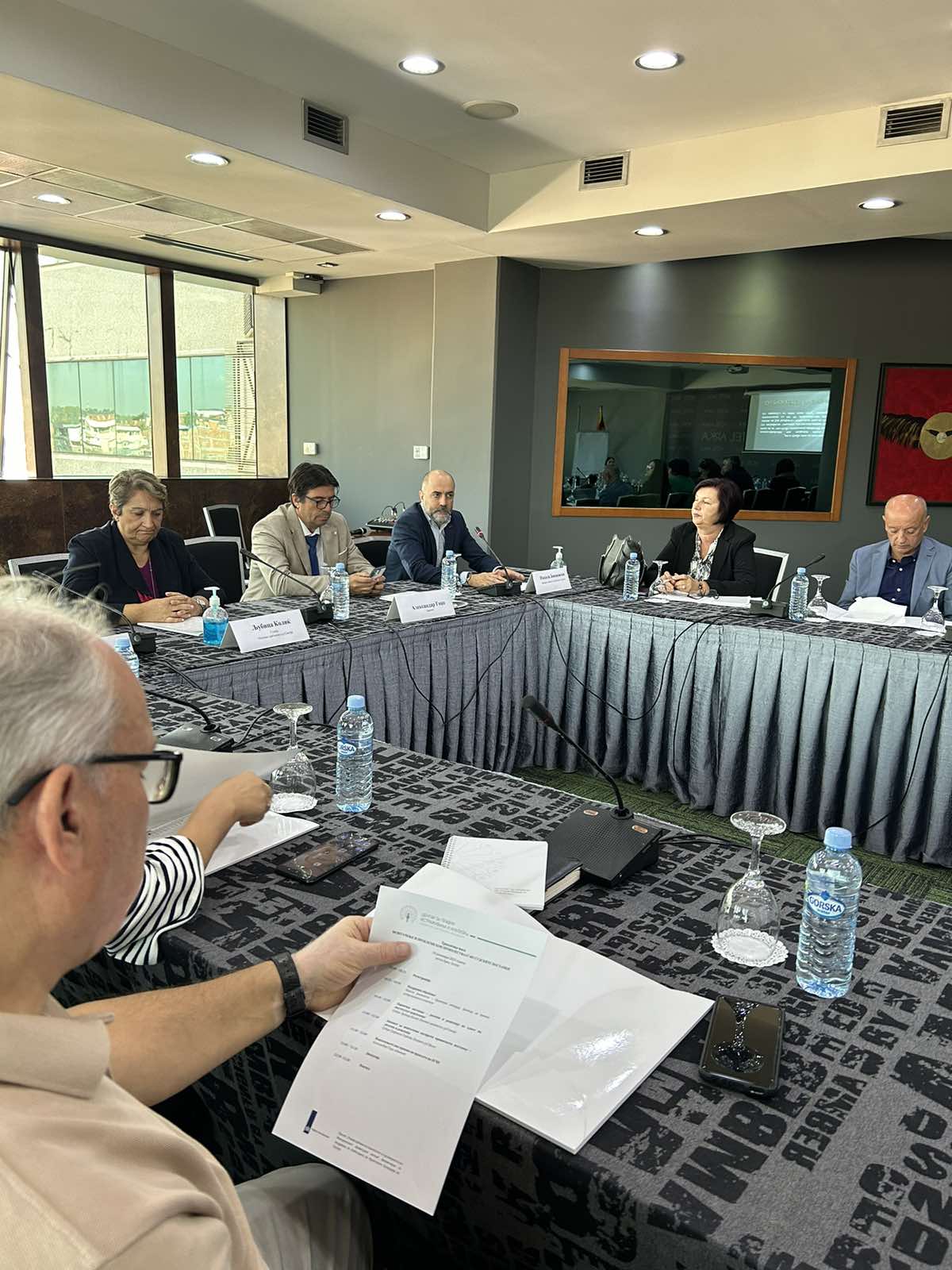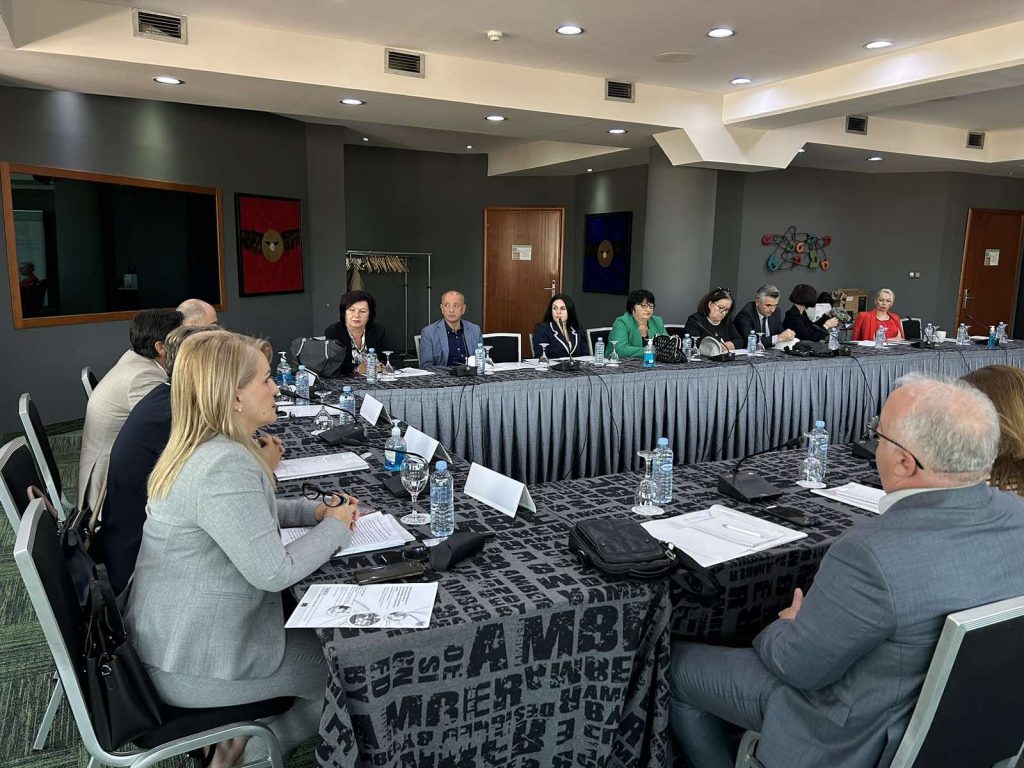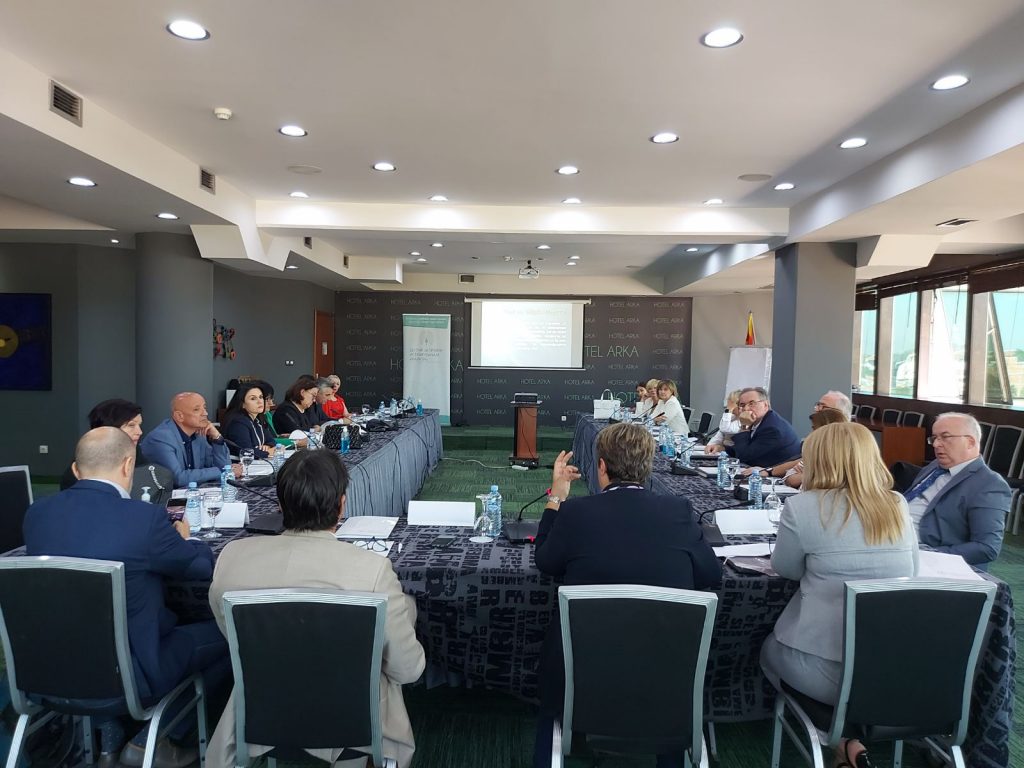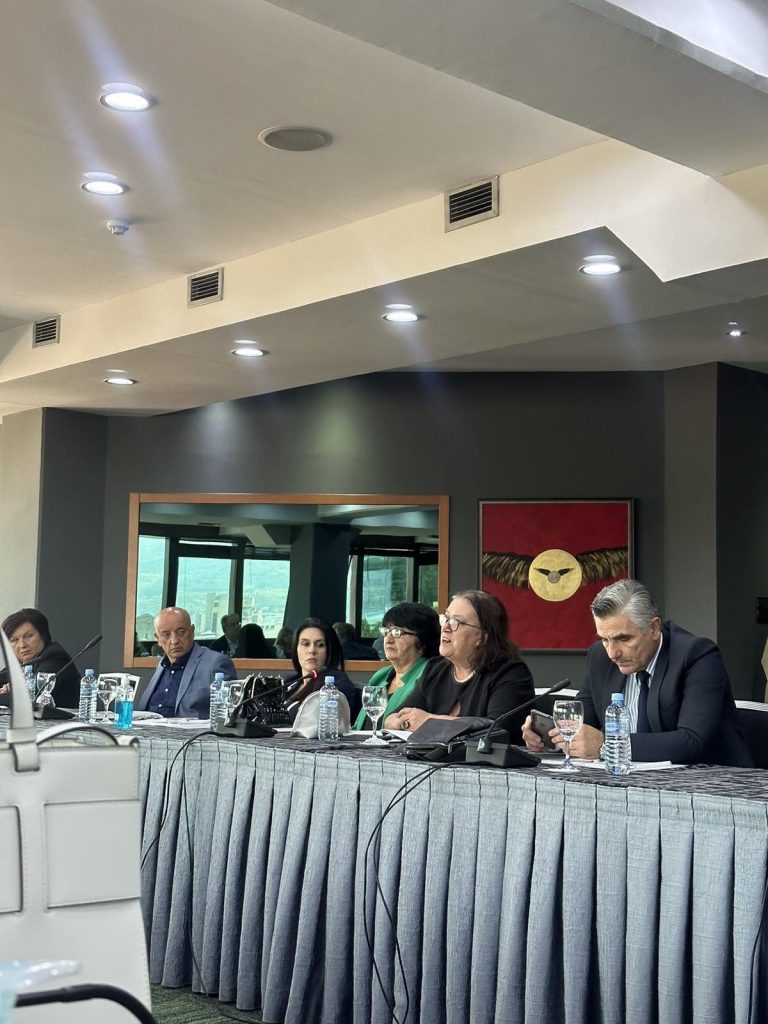
On October 10, 2023, the Center for Legal Research and Analysis within the project ,,Supporting quality quality and accountability in Macedonian justice sector” organized a round table on the topic – Expert testimony and problems arising in court proceedings. The project is the result of continuous financial support from the Embassy of the Kingdom of the Netherlands in the Republic of North Macedonia.
Nikola Jovanovski, program manager of CLRA, in his welcoming address thanked for the great interest in attending the event. He pointed out that the idea for the round table on this topic arose from the changes in the laws that refer to the expertise and the dilemmas in their practical application.
Judge Ljubica Kolic from the Basic Civil Court Skopje had her presentation, she highlighted the dilemmas and suggested solutions regarding the institute of expertise in litigation. The judge emphasized that one of the main controversial issues that must be resolved in court practice is whether judges will accept expert testimony in response to a lawsuit, and not at a preliminary hearing or at the first hearing of the main hearing. According to her, an acceptable solution is if the expert report was announced as evidence in response to a lawsuit, but was not submitted, to give the parties the opportunity to do so at the latest at the preparatory hearing.
Judge Kolic also highlighted the problem with the application of laws in court disputes, and paid particular attention to the procrastination of the procedure, which ultimately leads to a violation of the principle of trial within a reasonable time. It is precisely the super-expertise that can be the reason for further delaying the procedure, and the same is carried out due to the existence of completely contradictory expert opinions, especially a characteristic of traffic accidents. At the very end of her presentation, Judge Kolic appealed that it is necessary to supplement the Law on Expertise in order to apply it in practice, and she also emphasized that some of the old legal decisions can go in favor of more efficient procedures resolved within a reasonable time.

Judge Gabriela Gajdova from the Basic Court of Veles captured the criminal aspect of expert testimony and spoke about the dilemmas, but also about the solutions in the application of the Law on Expert Testimony in criminal proceedings. She emphasized that for quality expertise it is necessary to ensure that all relevant evidence is taken into account during the expertise. For those reasons, in the case of serious crimes, for example murders, it is usually and advisable to call in skilled persons for inspection, since the skilled person on the spot has the opportunity to immediately notice the traces immediately after the crime has been committed and possibly propose certain clarifications.
Judge Gajdova also mentioned that, apart from criminalizing the actions of experts for giving false findings and opinions, the new Law on Expertise also provides for disciplinary responsibility and a disciplinary measure – revocation of the expert’s license if they unprofessionally or negligently perform the expertise in contrary to the rules of science and profession.

The lawyer Aleksandar Godzo also had his presentation, who, through a thorough presentation, captured the expertise, that is, its application and characteristics through the prism of the ECtHR’s practice. He spoke about the procedural status as well as the meaning of the term witness, which according to the ECtHR, has an autonomous meaning, independent of the classification in national law and includes in its content the co-accused, victims, expert witnesses and police officers. In addition, Godzo emphasized that the request for a fair trial does not impose an obligation on the court to order expert testimony or any other investigative measure just because the party requested it. When the defense insists that the court hear a witness or consider other evidence (such as expert testimony), it is up to the court to decide whether it is necessary.
After the presentations of the speakers, the attendees started a discussion and shared some of the problems they face as judges, as well as in which direction the solutions should move in order to ensure a fair and timely completion of court proceedings, and thus a better quality and an accountable justice system.


